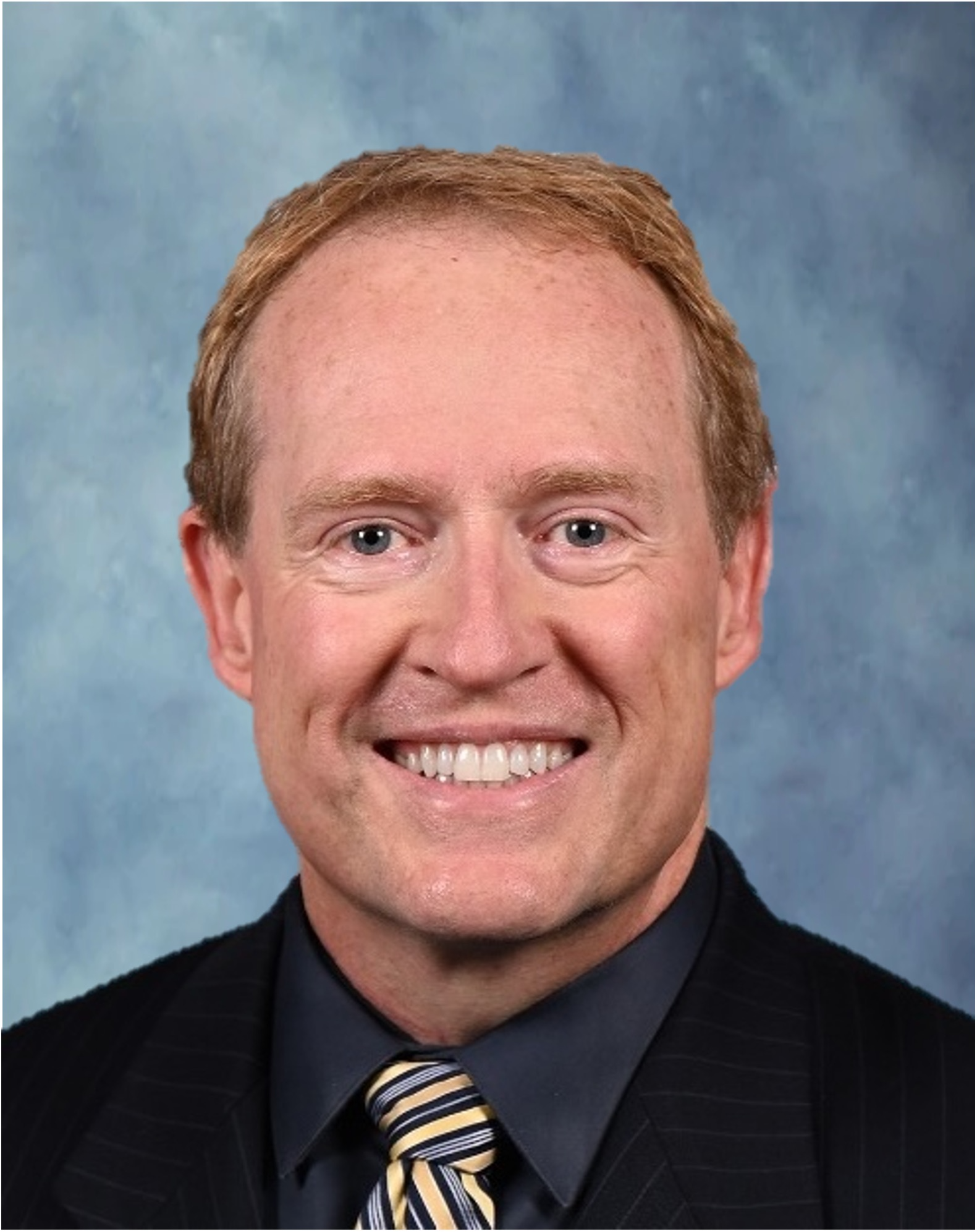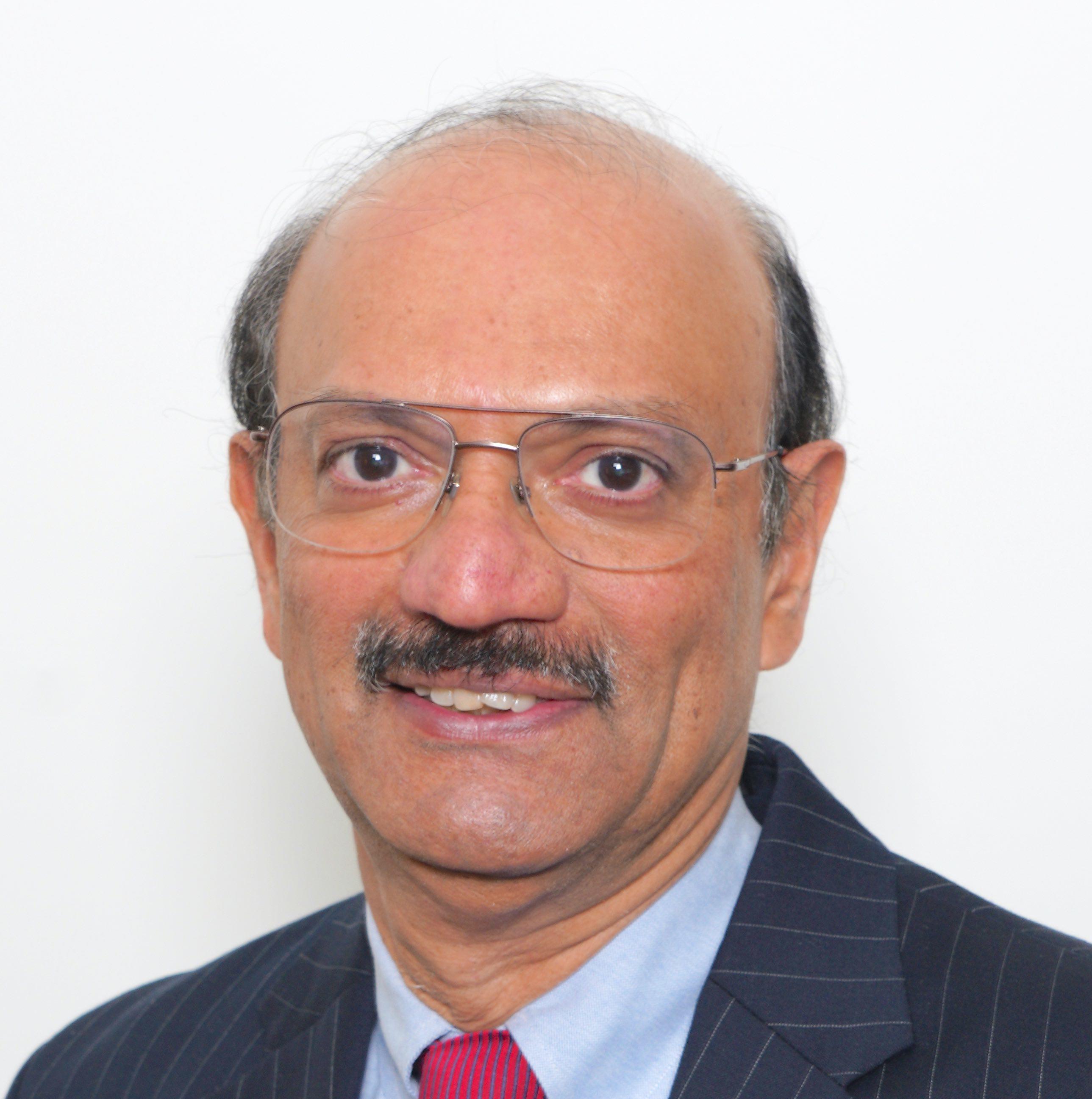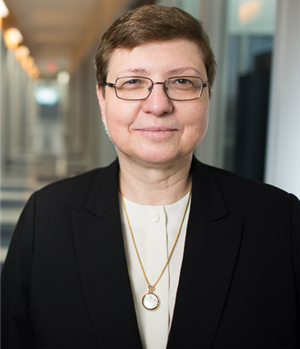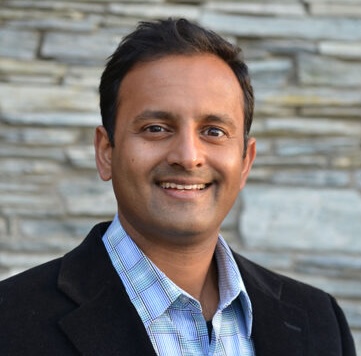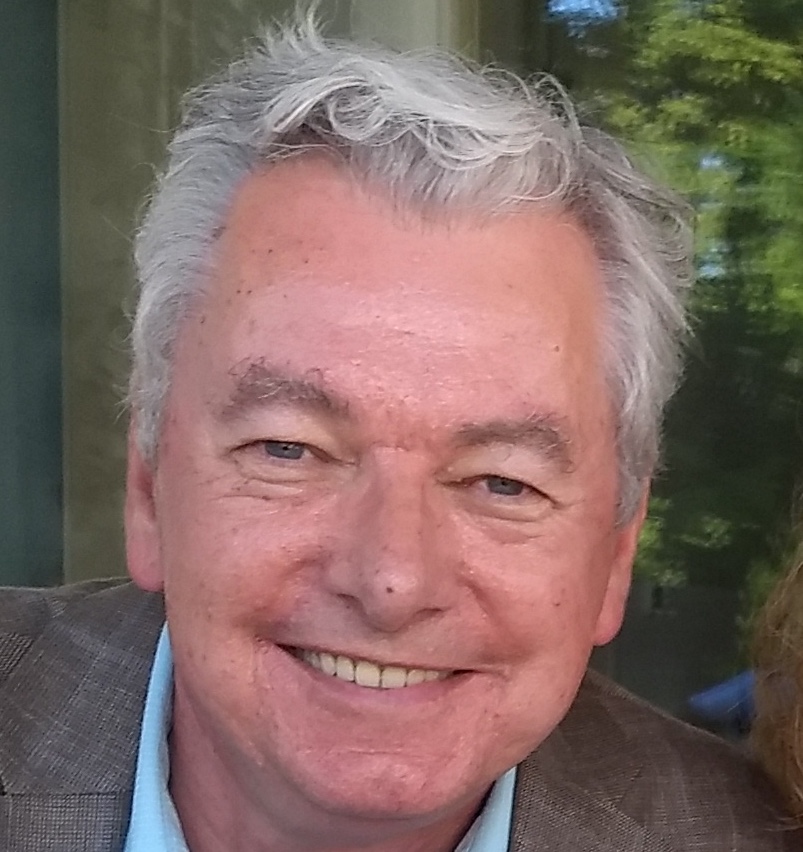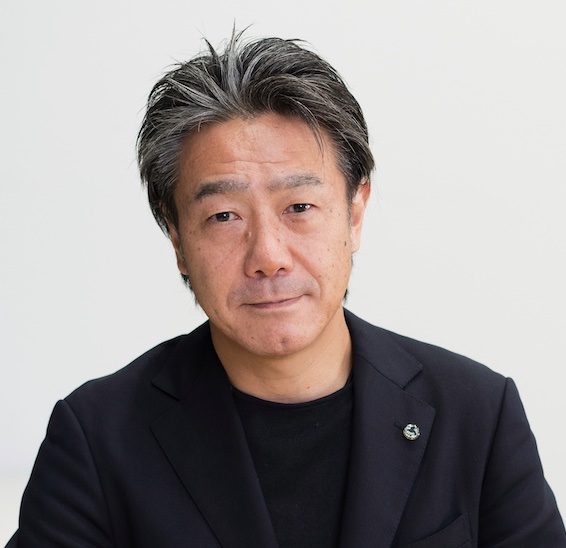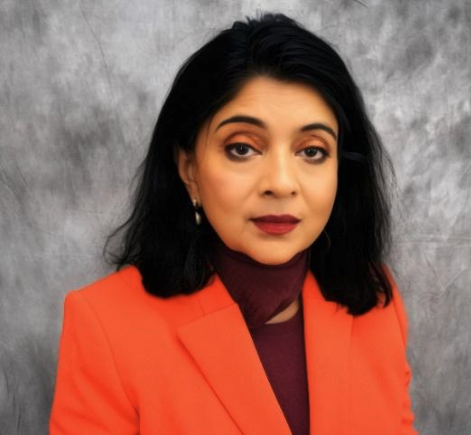Keynote Speakers
(June 3rd, 09:00 – 10:15) Navigating Our AI-Enabled Future in High-Stakes Domains
Speaker: Dr. Douglas C. Schmidt, Dean of William & Mary’s School of Computing, Data Sciences & PhysicsAbstract: This talk presents an overview of our path toward an AI-enabled future for high-stakes domains like healthcare, national security, finance, etc. My narrative traces the arc from CMU/SEI’s 2021 National Software Agenda roadmap to ChatGPT’s 2022 “escape” from the lab, highlighting AI as an augmenter rather than an apocalypse. A four-quadrant map of AI use across the SDLC spotlights low-cost generative tools that slash cognitive load yet require critical thinking and prompt-engineering savvy. Success, however, hinges on trustworthy, assured AI, where non-determinism, data quality, and emergent behavior loom large. I emphasize shifting AI’s power upstream to analyze requirements, policies, and legacy test data, deriving smarter test cases and continuous assurance. To bridge the coming digital chasm, increased investment in research, policy, and upskilling must accelerate so AI-savvy professionals don’t leave the rest behind. Jump in now—because, like Maverick in Top Gun II, humans remain indispensable… at least today.
Bio: Douglas C. Schmidt is the inaugural Dean of William & Mary’s School of Computng, Data Sciences & Physics. With more than thirty years of experience as an internationally recognized computing expert, he is a sought-after educator and leader. As Dean, Dr. Schmidt is focused on advancing William & Mary’s efforts to prepare students for success in a data-driven world.
Prior to his role with William & Mary, Dr. Schmidt served as the Director of Operational Test and Evaluation (DOT&E), a President-appointed Senateconfirmed position that advises the Secretary of Defense on operational and live fire test and evaluation of Department of Defense weapon and information systems. Before his DOT&E appointment, Dr. Schmidt held a variety of roles at Vanderbilt University, including the Cornelius Vanderbilt Professor of Engineering in Computer Science, the Associate Provost for Research, CoDirector of the Data Science Institute, the Associate Chair of Computer Science, and a Senior Researcher at the Institute for Software Integrated Systems. He was instrumental in building Vanderbilt’s digital learning initiatives and continually developing innovative programs to serve students. Dr. Schmidt has also been affiliated with Carnegie Mellon University’s Software Engineering Institute in various researchoriented positions for 20 years.
In addition to higher education, Dr. Schmidt has served in a number of roles in public and private sectors. From 2010 to 2014, he was a member of the Air Force Scientific Advisory Board (AF SAB), where he served as Vice Chair of a study on Cyber Situational Awareness for Air Force mission operations, as well as a study on sustaining hardware and software for US aircraft. He also served on the advisory board for the joint Navy/Army Future Airborne Capability Environment (FACE) initiative. From 2000 to 2003, Dr. Schmidt served as a Program Manager in the DARPA Information Exploitation Office (IXO) and Information Technology Office (ITO). He has also worked for a number of private companies, including Prism Technologies and Zircon Computing.
Dr. Schmidt's research over the past four decades covers a range of software-related topics, including paterns, optimization techniques, and quality assurance of frameworks and model-driven engineering tools that facilitate the development of mission-critical middleware for cyber-physical systems and intelligent mobile cloud computing applications. He is a highly cited author with over 50,000 citations to date and has published more than 700 papers and co-authored more than 10 books. He has also developed widely-used open-source DRE middleware, model-driven engineering tools and mobile cloud computing apps. His recent research focuses on prompt engineering techniques and paterns that enhance the accuracy and expressiveness of large language models and generative augmented intelligence platforms. Dr. Schmidt received Bachelor and Master of Arts degrees in Sociology from William & Mary and Master of Science and Doctorate degrees in Computer Science from the University of California, Irvine.
(June 4th, 09:00 – 10:15) Revolutionizing Health Care: The Convergence of Technology, Data, and P9 Medicine
Speaker: Dr. Ram D. Sriram, Chief of the Software & Systems Division, National Institute of Standards & Technology’s Information Technology Laboratory (ITL)Abstract: In 2013, I had the privilege of co-organizing a panel with Vint Cerf at AAAS 2013, titled "Smart Phones, Smart Devices, and Smart Healthcare." This panel explored the idea that next- generation networks, combined with the proliferation of smart phones, would leverage a vast array of resources with advanced sensing capabilities, transcending traditional physically linked computers to incorporate multimodal information from biological, cognitive, semantic, and social networks. We recognized that these emerging networks would have a profound impact on the future of healthcare. This vision led to the development of the P9 medicine concept, which I created in collaboration with Ramesh Jain and Eswaran Subrahmanian, and extends Leroy Hood’s P4 medicine idea. P9 medicine is a holistic approach to health care that encompasses nine key principles: personalized, predictive, preventive, participatory, pervasive, precise, privacy-preserving, protective, and reasonably priced. This framework serves as the foundation for a comprehensive digital health ecosystem. In this talk, I will delve into the P9 concept and its intersections with other digital revolutions, including artificial intelligence, OMICs, and virtual and augmented reality. Additionally, I will outline a strategic plan for implementing digital wellness, which harnesses the power of information technology to promote robust physical and mental health. By leveraging these digital revolutions, we can create a transformative health care system that prioritizes prevention, precision, and patient empowerment.
Bio: Ram D. Sriram is currently the chief of the Software and Systems Division, Information Technology Laboratory, at the National Institute of Standards and Technology. Before joining the Software and Systems Division, Sriram was the leader of the Design and Process group in the Manufacturing Systems Integration Division, Manufacturing Engineering Laboratory, where he conducted research on standards for interoperability of computer-aided design systems. Prior to joining NIST, he was on the engineering faculty (1986-1994) at the Massachusetts Institute of Technology (MIT) and was instrumental in setting up the Intelligent Engineering Systems Laboratory. Sriram has co-authored or authored more than 300 publications, including several books. Sriram was a founding co-editor of the International Journal for AI in Engineering. Sriram received several awards including: an NSF’s Presidential Young Investigator Award (1989); ASME Design Automation Award (2011); ASME CIE Distinguished Service Award (2014); the Washington Academy of Sciences’ Distinguished Career in Engineering Sciences Award (2015); ASME CIE division’s Lifetime Achievement Award (2016); CMU CEE Lt. Col. Christopher Raible Distinguished Public Service Award (2018); IIT Madras Distinguished Alumni Award (2021), IEEE Reliability Soceity’s Lifetime Achievement Award (2023), and the 2024 Product Lifecycle Management Pioneers Award from IFIP TC5/WG5.1 for his groundbreaking work on computers and information modeling for design and manufacturing. Sriram is a Fellow of AAIA, ACM, AIBME, ASME, AAAS, IEEE, IET, INCOSE, SMA, SME, and Washington Academy of Sciences, and a Senior Member (life) AAAI. In 2023, Sriram was elected as an honorary member of the Institute of Industrial and Systems Engineers – the highest honor IISE grants to an individual of acknowledged professional eminence who is not a member of IISE. Sriram has a B.Tech. from IIT, Madras, India, and an M.S. and a Ph.D. from Carnegie Mellon University, Pittsburgh, USA.
(June 5th, 09:00 – 10:15) Next Generation Multi-View Video Content Delivery to Mobile Devices
Speaker: Prof. Klara Nahrstedt, Swanlund Chair Professor, Siebel School of Computing and Data Science; Director, Coordinated Science Laboratory, Grainger College of Engineering, UIUCAbstract: With new 360 video cameras and new generative AI technologies generating NeRF video content, we are faced with new multi-view video content to be delivered to high end mobile devices such as VR/AR headsets and smartphones. One of the main goals with such a multi-view video content is to deliver high quality of experience to users when streaming, viewing, and interacting with multi-view video content. In this talk, we will discuss system and network challenges and solutions how to prepare, stream, and deliver next generation multi-view video content to AR/VR end devices with high quality of experience. Numerous potential system and network solutions are becoming available to satisfy the streaming and viewing demands of multi-view video content, including designing view-based protocols, experimenting with viewport navigation and prediction techniques, and developing neural network-based streaming and rendering services for interactive viewing. Current results of multi-view video systems show promising new concepts and algorithms to enable high quality of experience, but further challenges remain.
Bio: Klara Nahrstedt is the Swanlund Endowed Chair and Professor in the Siebel School of Computing and Data Science, and the Director of Coordinated Science Laboratory in the Grainger College of Engineering at the University of Illinois at Urbana- Champaign. Her research interests are directed toward tele-immersive systems, 360 video systems, end-to-end Quality of Service (QoS), machine learning for systems, and cyber-physical systems. She is the recipient of the IEEE Computer Society Technical Achievement Award, ACM SIGMM Technical Achievement Award, and others. She received her Diploma in Mathematics from Humboldt University, Berlin, Germany in 1985. In 1995, she received her PhD from the University of Pennsylvania in the Department of Computer and Information Science. She is the ACM, IEEE, and AAAS Fellow, Member of the German National Academy of Sciences (Leopoldina Society), and Member of the US National Academy of Engineering.
Industry Talks
Wireless in the Era of Edge Compute and AI
Speaker: Dr. Hemanth Sampath, Vice President of Engineering at QualcommBio: Hemanth Sampath is Vice President of Engineering at Qualcomm, where he leads technologies at the intersection of 6G/5G and emerging user experiences, including XR, multi-modal AI, cloud gaming, robotics, distributed computing, and digital twins. He also heads Qualcomm’s University Relations Platforms program, enabling educators and students to integrate edge AI, IoT, and XR platforms into research and teaching. From 2009 to 2019, he led Wi-Fi R&D Systems Engineering, shaping 802.11 standards and technologies like MU-MIMO and mesh, and collaborated with Qualcomm Ventures on cloud-based Wi-Fi monetization. Earlier, he held systems lead roles in 4G (UMB) modem and standards development. Hemanth received the 2013 Qualcomm IP Excellence Award and holds 300 U.S. patents. Prior to Qualcomm, he worked at Marvell Semiconductors and was part of the core team at startup Iospan Wireless. He earned his Ph.D. in Electrical Engineering from Stanford University in 2001.
Invited Talks Speakers
(June 3rd, 13:30 – 14:00) Flying Light Specks: Dronevision, Holodecks and Spatial Computing
Speaker: Dr. Shahram Ghandeharizadeh, Associate Professor, Computer Science Department, University of Southern CaliforniaDirector, Flying Light Specks Laboratory
Abstract: Since their introduction in 2021, the concept of 3D multimedia displays using Flying Light Specks, FLSs, has started to gain wider adoption. An FLS is a small drone configured with light sources and sensors that enable it to detect human touch. A swarm of FLSs illuminates 3D shapes and animations in a fixed volume that are visible to the naked eye and responsive to direct interaction with bare hands. They are a building block of desktop 3D multimedia displays, a Dronevision, a room sized 3D multimedia display, a Holodeck, and our 3D world, Spatial Computing. They complement existing Augmented Reality (AR) and eXtended Reality (XR) glasses. They shape the frontiers of multimedia systems research with the potential to revolutionize how we collaborate and work, learn and educate, design and manufacture, receive and deliver healthcare, and play and entertain.
Bio: Shahram Ghandeharizadeh has been on the faculty of the USC Computer Science Department since 1990. In the mid 1990s when VHS and BETA tapes were dominant, his research group built Mitra, the first streaming software system with the ability to scale to multiple nodes. This groundbreaking system was later licensed by Panasonic for its research and development initiatives. In addition to Mitra, he has contributed to several pioneering systems, earning him the prestigious ACM Software System Award in 2008. FLS displays are the latest addition to his body of work, currently supported by two NSF grants. He is actively cultivating a collaborative academic network to expedite the research and realization of the Dronevision project. This includes the annual Holodecks Conference, with the next installment scheduled for January 8, 2026. See https://www.holodecks.quest for details.
(June 4th, 13:30 – 14:00) Modeling Spatio-temporal Data: Recent Trends in Machine Learning
Speaker: Dr. Padhraic Smyth, Hasso Plattner Endowed Chair in Artificial Intelligence, Dept of Computer Science, Univ of CA, IrvineAbstract: Advances in deep learning over the past decade have led to major advances (both in research and in applications) across areas such as computer vision, natural language processing, speech recognition, and more. These techniques have not yet had quite the same level of impact in spatio-temporal data analysis and modeling, despite the fact that spatio-temporal data is ubiquitous in the sciences, in medicine, and in business. In this talk we will review key ideas in deep learning and discuss their promise for applications in spatio-temporal data modeling, using illustrative examples from areas such as climate science, health, and consumer behavior.
Bio: Padhraic Smyth is a Distinguished Professor in the Department of Computer Science at UC Irvine, with joint appointments in the Department of Statistics and in the Department of Education. His research interests include machine learning, artificial intelligence, pattern recognition, and applied statistics and he has published over 200 papers on these topics. He is an ACM Fellow, IEEE Fellow, AAAI Fellow and AAAS Fellow, and was a recipient of the ACM SIGKDD Innovation Award. He is co-author of the text Modeling the Internet and the Web: Probabilistic Methods and Algorithms (Wiley, 2003) and Principles of Data Mining (MIT Press, 2001). He served as program chair of the ACM SIGKDD 2011 and UAI 2013 conferences, associate program chair for IJCAI 2022, general chair for AI-Stats 1997, and in various senior/area chair positions for conferences such as NeurIPS, ICML, and AAAI. He has also served in editorial and advisory positions for journals such as the Journal of Machine Learning Research, the Journal of the American Statistical Association, and the IEEE Transactions on Knowledge and Data Engineering. Padhraic was the founding director of the UCI Center for Machine Learning and Intelligent Systems from 2007 to 2014 and founding director from 2014 to 2018 of the UCI Data Science Initiative. While at UC Irvine he has received research funding from agencies such as NSF, NIH, IARPA, NASA, NIST, ONR, and DOE, and from companies such as Google, Qualcomm, Microsoft, eBay, Adobe, IBM, SAP, Xerox, and Experian. In addition to his academic research he is also active in industry consulting, working with companies such as Toshiba, Samsung, Oracle, Nokia, and AT&T, as well as serving as scientific advisor to local startups in Orange County. He also served as an academic advisor to Netflix for the Netflix prize competition from 2006 to 2009. Padhraic grew up in Kilmovee, County Mayo, in the west of Ireland and received a first class honors degree in Electronic Engineering from National University of Ireland (University of Galway) in 1984, and the MSEE and PhD degrees (in 1985 and 1988 respectively) in Electrical Engineering from the California Institute of Technology. From 1988 to 1996 he was a researcher at the Jet Propulsion Laboratory, Pasadena, and has been on the faculty at UC Irvine since 1996.
(June 5th, 13:30 – 14:00) Tsunami Digital Twin : Its Concept, Progress, and Applications to Japan and the US
Speaker: Dr. Shunichi Koshimura, Deputy Director, Professor, International Research Institute of Disaster Science, Tohoku University / Co-founder & CTO, RTi-cast, Inc.Abstract: The digital twin is recognized as digital copies of the physical world's objects stored in digital(cyber) space and utilized to simulate the sequences and consequences of target phenomena. Users can fully view the target through real-time feedback by incorporating the physical world's data into the digital twin. Given the importance of the digital twin, we have proposed Tsunami Digital Twin (TDT) as a new paradigm in tsunami science and engineering to enhance tsunami disaster resilience. The components of TDT are the transformation from "Data" to "Information" by integrating sensing, monitoring, and simulation; "Interpretation" of data and information; and "Inference" by using available data and information to draw conclusions and consequences and decide policies and responses for social resilience. Fusing these components is the key to gaining knowledge and insight for optimal solutions in the physical world. We report the progress of TDT applications underway in Japan and the US. The progress reports of TDT focus on the multi-platform computing capability for the operational GNSS-based real-time tsunami inundation forecast with offshore tsunami data assimilation, real-time tsunami exposure estimation using mobile phone data, and the optimization model of the rescue mission in the tsunami inundation zone.
Bio: Shunichi Koshimura is a Deputy Director and a Professor at International Research Institute of Disaster Science, Tohoku University. His research focuses on "Real-time Disaster Science" which aims to elucidate disaster processes and social impacts of natural disasters by fusion of numerical modeling, earth observation, and geo-informatics with HPCI (High-Performance Computing Infrastructure). Koshimura is a Co-Founder and CTO of RTi-cast, Inc., a university-based technology start-up to offer real-time tsunami inundation damage forecast services to government organizations and commercial clients. Koshimura received a Ph.D. degree from the Graduate School of Engineering, Tohoku University in 2000. After graduating from Tohoku University, he started his career as a postdoctoral research fellow at Pacific Marine Environmental Laboratory (PMEL), NOAA. As his research achievements, he has received awards and honors including Coastal Engineering Journal Award, Mohammed El-Sabh Award of Natural Hazards Society, Japan Water Prize, Best Paper Award of Japan Society of Civil Engineers, and the Commendation for Science and Technology by the Minister of Education, Culture, Sports, Science and Technology.
Mentoring Keynote
Mentoring for Career Success in Computer Science for All
Speaker: Dr. Bhavani Thuraisingham, Founders Chair Professor of Computer Science and the Founding Executive Director of the Cyber Security Research and Education Institute (2004-2021) at The University of Texas at Dallas.Abstract: The representation of all communities has increased in Computer Science (CS) over the past decade. However, in many disciplines of computing, such as artificial intelligence, cyber security and especially in quantum computing, not all groups are represented well. In order to encourage more representation from all groups in highly lucrative areas in computer science, it is essential that students and those in the workforce need mentoring from the time they start school around 5 years old until they finish their careers which is now at 70 or even 80 and beyond for many. Only then will more people have opportunities to be in positions of power in academic institutions (e.g., Engineering Deans) and in the C-Suite in corporations and corporate boards. For example, senior researchers and practitioners have to support junior colleagues in getting promotions and awards such as IEEE and ACM Fellows and various technical recognition awards. We need to explain the benefits of having a career in computing early. Also, as the workforce gets older and more people are leading long and healthy lives, we need mentoring for such groups so that they are motivated and develop technologies from the vast experience they have gained over decades of work experience. My keynote presentation on mentoring first discusses the benefits of a career in computing and stresses on the fact that a high paying job is necessary for every person so that he/she can be independent and not rely on others for survival. Second, it describes the importance of mentoring for career success that includes a discussion of some of my personal experiences, and provides advice to mentors and mentees. Third, it describes the benefits of playing the long game for career success. Finally, it provides some directions for the future.
Bio: Dr. Bhavani Thuraisingham is the Founders Chair Professor of Computer Science and the Founding Executive Director of the Cyber Security Research and Education Institute (2004-2021) at the University of Texas at Dallas (UTD). She is an elected Fellow of the ACM, the IEEE, the AAAS, and the NAI. Her research interests are on integrating cyber security and artificial intelligence/data science including as they relate to the cloud, social media, and Transportation Systems. She has received several technical, education and leadership awards including the IEEE CS 1997 Edward J. McCluskey Technical Achievement Award, the IEEE CS 2023 Taylor L. Booth Education Award, ACM SIGSAC 2010 Outstanding Contributions Award, the IEEE Comsoc Communications and Information Security 2019 Technical Recognition Award, the IEEE CS Services Computing 2017 Research Innovation Award, the ACM CODASPY 2017 Lasting Research Award, and the ACM SACMAT 10 Year Test of Time Awards for 2018 and 2019 (for papers published in 2008 and 2009). Her 44+ year career includes industry (Honeywell), federal research laboratory (MITRE), US government (NSF) and US Academia. Her work has resulted in 140+ journal articles, 300+ conference papers, 200+ keynote and featured addresses, seven US patents, sixteen books, and over 120 panel presentations including at Fortune Media, Lloyds of London Insurance, Dell Technologies World, United Nations, and the White House Office of Science and Technology Policy. She has also written opinion columns for popular venues such as the New York Times, Inc. Magazine, Womensday.com and the Legal 500. She received her PhD from the University of Wales, Swansea, UK, and the prestigious earned higher doctorate (D. Eng) from the University of Bristol, UK. She also has a Certificate in Public Policy Analysis from the London School of Economics and Political Science. She has been featured in the book by the ACM in 2024 titled: “Rendering History: The Women of ACM-W” as one of the 30+ “Women that Changed the Face of World Wide Computing Forever.”
Plenary Panel
Harnessing Foundation Models for Spatiotemporal Applications
Chairs:- Dimitrios Gunopulos (University of Athens, Greece)
- Takahiro Hara (Osaka University, Japan)
- Vassilis J. Tsotras (University of California, Riverside, USA)
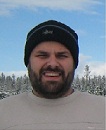
Petko Bakalov is currently a principal software engineer at the Environmental Systems Research Institute (ESRI). His work in ESRI primarily focuses on geographic network modeling and involves our two network models for transportation and utility management. He received his Bachelor's and Master's degrees in Computer Systems and Control from the Technical University of Sofia in Bulgaria, and his Ph.D. degree in Computer Science from the University of California at Riverside. His current research interests are in the areas of Database management systems, Geographic Information Systems, Spatio-temporal databases and Spatio-temporal knowledge management.
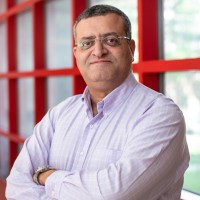
Mohamed Mokbel is a Distinguished McKnight University Professor at the University of Minnesota. Prior roles while on leave/sabbatical from UMN include Chief Scientist of Qatar Computing Research Institute, Founding Technical Director of GIS Technology Innovation Center in Saudi Arabia, and multiple times Visiting Researcher at Microsoft Research, USA. His research interests include database systems and spatial computing. He was recognized by the IEEE ICDE 10-Year Influential Paper Award for his work on spatial big data, the ACM SIGSPATIAL 10-Year Impact Award for his work on location-based social networks, and the VLDB 10-Year Test-of-Time Award for his work on location privacy. Mohamed is the Editor-in-Chief for ACM Transactions on Spatial algorithms and Systems (ACM TSAS), and on the editorial board of ACM Books and ACM TODS. He has served as the elected Chair of ACM SIGSPATIAL, PC Co-Chair for ACM SIGMOD, ACM SIGSPATIAL, and IEEE MDM. Mohamed is an IEEE Fellow and ACM Distinguished Scientist.
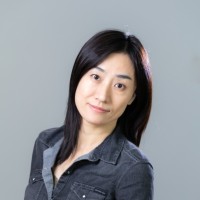
Ashley Song received her Ph.D. in Information Science from the University of North Carolina at Chapel Hill, specializing in human-computer interaction. She is currently a Principal Group Product Manager at Microsoft, where she leads the Bing Places User Experiences product team. Her work focuses on advancing local search, geospatial data, and user experiences across web and mobile platforms. Recent efforts include integrating Copilot and modern search capabilities into mapping and local discovery, while contributing to the broader Microsoft AI ecosystem. She is passionate about ethical AI, innovative user experiences, and designing intuitive products that help people explore and understand the world around them.
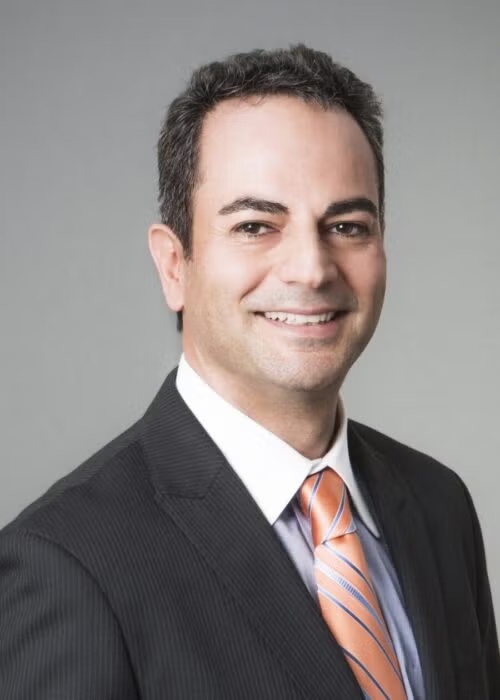
Cyrus Shahabi is a Professor of Computer Science, Electrical & Computer Engineering and Spatial Sciences; Helen N. and Emmett H. Jones Professor of Engineering; and the director of the Integrated Media Systems Center (IMSC) at USC’s Viterbi School of Engineering. He also served as USC's Thomas Lord Department of Computer Science from 2017 to 2022. He was co-founder of two startups, Geosemble Technologies and Tallygo, which both were acquired in July 2012 and March 2019, respectively. He received his B.S. in Computer Engineering from Sharif University of Technology and his M.S. and Ph.D. Degrees in Computer Science from the University of Southern California. He authored two books and more than three hundred research papers in databases, GIS, and multimedia, and he has over 14 US patents. Dr. Shahabi is a fellow of IEEE and NAI (National Academy of Inventors). He received the 2003 U.S. Presidential Early Career Awards for Scientists and Engineers (PECASE) and the ACM SIGSPATIAL 2023 10-Year Impact Award.
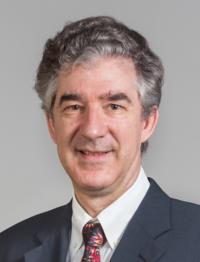
Roger Zimmermann received his M.S. and Ph.D. degrees from the University of Southern California (USC). He is currently a Professor with the Department of Computer Science at the National University of Singapore (NUS). He recently was a key investigator with the Grab-NUS AI Lab and he previously was a Deputy Director with the Smart Systems Institute (SSI) and co-directed the Centre of Social Media Innovations for Communities (CoSMIC) at NUS. He has co-authored more than 450 conference publications, journal articles, and book chapters. His research interests include streaming media architectures, urban computing, mobile and geo-referenced video management, applications of machine/deep learning, and geospatial data management. He is an associate editor with the ACM Transactions on Multimedia Computing, Communications, and Applications (TOMM), the IEEE Transactions on Multimedia (TMM), the ACM Transactions on Spatial Algorithms and Systems (TSAS) and the IEEE Open Journal of the Communications Society (OJ-COMS). He is a distinguished member of the ACM and a senior member of the IEEE. Further information can be found at https://www.comp.nus.edu.sg/cs/people/rogerz/

